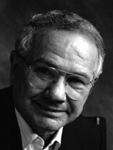
Elliot Eisner
INSIDE
- Articles
- Book Reviews
- Movie Reviews
- Letters
- Thought for the Day
- Today's News
- Bookmarks
- Sponsors
- Submissions
- Fisher House Publishers
- About Living Better

Enter for a free trip to Tahiti
| Students should be
involved in setting their own learning outcomes, says educator
An internationally recognized scholar in school improvement suggests students should be allowed to choose what they will learn. Student involvement in deciding learning outcomes is one of a list of ways to improve schools that Elliot Eisner, the Lee Jacks professor of education and a professor of art at Stanford, told educators and parents at Boise State University. Eisner indicated students need to become the architects of their own education. Teachers should encourage them to set the conditions for problems, which they will pursue. This means giving students “space” to set their own learning outcomes, he said. But to do this teachers also must not only be able to decide how to teach, but also what they will teach, Eisner said. According to Eisner, the school system is created for organizational convenience. It has nothing to do with human development. America needs to shift from the manufacturing model to an arts-based model, he said. “When educators unscrewed desks from the floor, not only was there a change of furniture, but in the conception of how to educate,” Eisner claimed. He indicated that America needs to metaphorically unscrew the desks again. Instead of teaching toward the average student, teach to a student’s needs and abilities. By increasing the variance (difference) the mean is also escalated, said Eisner. Students with high aptitudes for learning would excel while those with less aptitude would do better. A growing difference exists in society among haves and have-nots. But this is different, according to Eisner, because the variance is based on aptitude. “In production we want uneventful events. No surprises,” said Eisner. But in education “we want to set up conditions so it is possible to be surprised.” In education surprise breeds freshness and discovery. One way of encouraging surprises is to use different kinds of learning. “The most important skill is not in problem solving, but in question posing.” At the end of a unit of study students should be encouraged to ask questions. Students should “see alternatives and raise new questions,” Eisner said. He told the audience the most important learning is what kids do outside of school. Transferring learning must be taught so students make connections between school and the outside. “It is what students do when they do what they want that is important,” said Eisner. “Sex and play have their reward.” Students should be able to see the consequence of their activities. A clean kitchen is always rewarding. But society emphasizes the check or grade. If a person gets a test score that is inflated, it is not an education, Eisner noted. To make judgments about how a person is doing you don’t need to use a grade; you can use a description. Maslow indicated the highest form of motivation is self-actualization. Scientists know in order to inquire. Students need to see the results of their learning. This leads to self-actualization. How can we nudge education in the direction Eisner is suggesting? “We need to create a community of learners,” said Eisner. Good conversation requires learning how to listen as well as speak. Conversation is a way of exploring ideas. That is why the interest in talk shows, according to Eisner. “People are starved for that kind of conversation.” Principals should spend time in classrooms; teachers should talk to each other. “Begin conversation in your school so out of collective discussion can come improvement in schools,” he recommended. “Create a collective vision of education. Establish forums where the public can also gain a different vision of education and have an opportunity to consider other ways of looking at education.” Eisner was trained as a painter at the Art Institute of Chicago and received his Ph.D from the University of Chicago. He has published 15 books on the role of arts education and the use of the arts to improve practice in other fields. He has won numerous award for his work, including Fulbright and Guggenheim fellowships. Eisner has served as president of the National Art Education Association, president of the International Society for Education Through Art, and is president of the John Dewey Society. Copyright October 2001 |